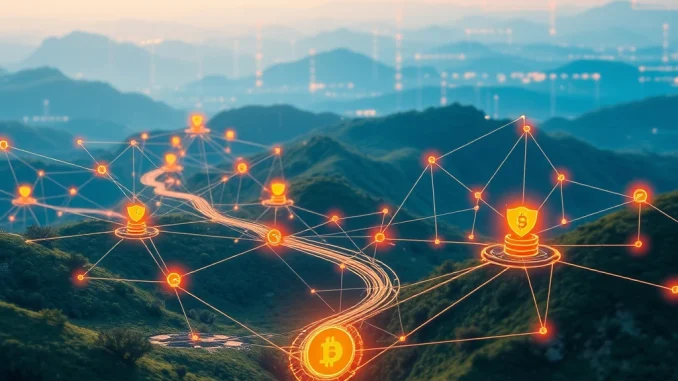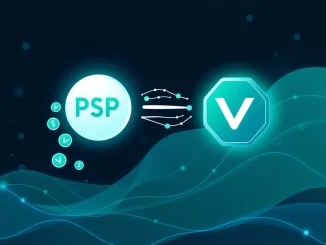
The intersection of Artificial Intelligence and Web3 is heating up, and recent news highlights a significant step forward. The movement towards **Decentralized AI** is gaining traction, and a key player just received a major boost from the crypto investment world.
Powering the Future: Decentralized AI Takes Center Stage
Gradient Network is at the forefront of this convergence, aiming to build robust **AI Infrastructure** that prioritizes user privacy and broad access. Their vision is to move away from centralized AI models, offering a more secure and equitable future for AI development and usage. Think of it as building AI that isn’t controlled by a single entity, making it potentially more resilient and trustworthy.
Significant Crypto Funding Fuels Gradient Network’s Growth
In a major show of confidence from the Web3 investment world, **Gradient Network** announced it has successfully closed a seed **Crypto Funding** round, securing an impressive $10 million. This significant investment was co-led by two prominent names in the space, Pantera Capital and Multicoin Capital, with additional participation from firms like HSG and others. This substantial backing underscores the growing belief in the potential of **Decentralized AI** solutions and the role that crypto capital can play in fostering this innovation.
Why Decentralized AI Infrastructure Matters
Gradient Network’s focus isn’t just on building AI; it’s on building it *differently*. By developing **AI Infrastructure** that is decentralized, they aim to tackle critical issues like data privacy and censorship resistance. This approach leverages blockchain principles to create AI systems that are more transparent, secure, and accessible to a wider range of users and developers, fostering innovation in the **Blockchain AI** space.
Key aspects driving the need for decentralized AI:
- Enhanced Privacy: Users can potentially retain more control over their data used for AI training or inference.
- Improved Access: Lowering barriers to entry for developers and small teams who might not have resources for large centralized platforms.
- Increased Resilience: Avoiding single points of failure inherent in centralized systems.
- Transparency: Potentially verifiable AI models and processes built on blockchain.
Gradient Network’s Vision for AI Accessibility
Beyond privacy, a core goal for **Gradient Network** is democratizing access to powerful AI tools. Centralized models can be expensive and controlled by a few entities. A decentralized approach can potentially lower barriers to entry, allowing more individuals and organizations to build and deploy AI applications without relying on single points of failure or control. This aligns perfectly with the ethos of decentralization often seen in the crypto world, opening up AI possibilities for a broader community.
The Path Ahead for Decentralized AI
While the $10 million **Crypto Funding** is a significant milestone, the journey to widespread **Decentralized AI** adoption involves navigating technical challenges and fostering ecosystem growth. Gradient Network is now well-capitalized to accelerate its development efforts, attract talent, and build partnerships necessary to bring its vision of private, accessible **AI Infrastructure** to reality. The support from leading investors like Pantera Capital signals strong belief in their ability to execute this ambitious plan and contribute meaningfully to the future of both AI and Web3.
Conclusion: A New Era for Blockchain AI?
Gradient Network’s successful $10 million seed round, led by crypto giants Pantera Capital and Multicoin Capital, marks a pivotal moment for the development of **Decentralized AI**. By focusing on private and accessible **AI Infrastructure**, Gradient Network is poised to become a key player in the evolving landscape where **Crypto Funding** meets cutting-edge **Blockchain AI**. This investment is a clear indicator of the market’s enthusiasm for AI solutions built on decentralized principles, potentially paving the way for a more open and secure AI future.



